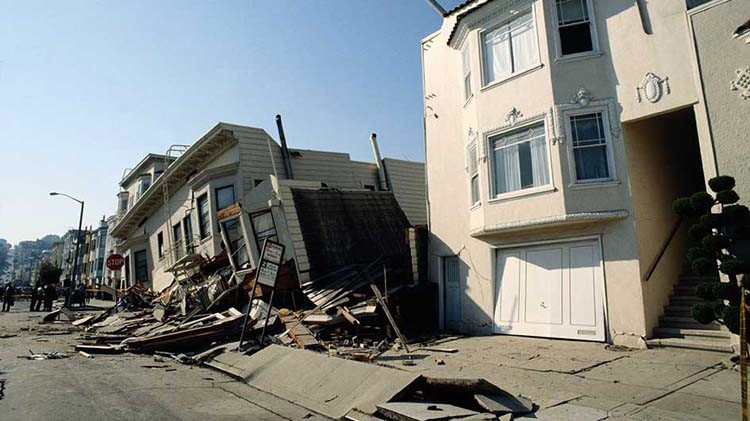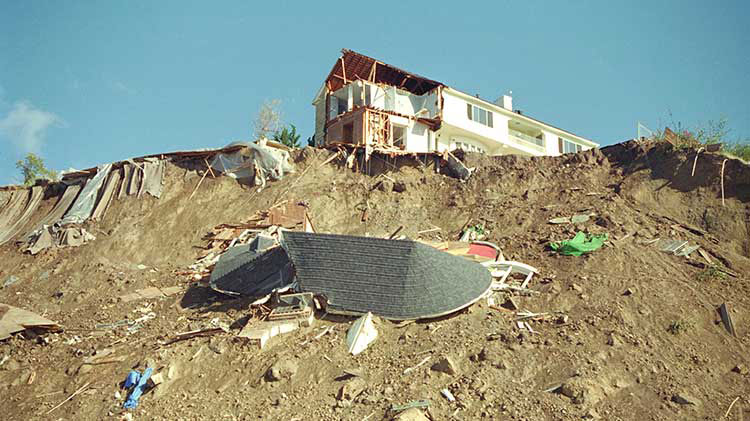Preparing your home for an earthquake
Before an earthquake happens, help prepare your family and your home with these earthquake preparation tips.
Most states in the U.S. have experienced an earthquake — with the majority being in the Pacific Northwest. The two states reported to have the most earthquakes are Alaska and California. Some of the other high-risk states include: Nevada, Hawaii, Washington, Wyoming, Idaho, Montana, Utah and Oregon. But almost every state in the U.S. has a chance of experiencing damage from an earthquake.
An earthquake can be scary and cause significant damage, but preparing for an earthquake before one hits may help you avoid injury and be better equipped for the aftermath.
Make an earthquake preparedness plan
If you live in an area that has a potential for an earthquake, consider having a plan in place. We recommend the following:
- Document your belongings - Create a home inventory and review it annually with your insurance agent. A home inventory can help catalog damages and help with the claims process.
- Consider earthquake insurance - Most standard homeowners and renters policies don't cover earthquake damage. If eligible, insurance coverage for earthquake damage may be purchased as an endorsement. Talk with your agent to find out what kind of coverage you have and what coverage you might need.
- Make an earthquake kit – Put together supply kits and keep them in a spot where they can quickly be reached even if your building is badly damaged. It is also a good idea to have a kit in your car and your workplace. Keep your supplies in an easy-to-carry container such as a backpack. Consider the following supplies for your kit:
- Medications
- First aid kit
- Bottled water (at least a 72-hour supply for each member of the family)
- Non-perishable, high-calorie snack foods (72-hour supply)
- Water and food for your pets
- Shoes
- Gloves and dust masks
- Blankets
- Ponchos
- Crank or battery-powered AM-FM radio
- Flashlight
- Fire extinguisher
- A whistle to alert rescuers
- Power packs for cellphones
- Spare eyeglasses or contacts if needed
- Toiletries
- Cash
- Copies of personal identification
- Secure your personal documents - Make sure your important documents are stored in a safe place. Documents, such as marriage licenses, birth certificates, wills and any other important records, should be stored in a safe that is rated to withstand the potential damage.
- Make a contact list - Create an emergency contact list, including your pet’s information. Ideally, your contact list would have some names that are outside your local area because it may be hard to contact people who are also affected by the earthquake. You should store this list with your earthquake kit.
- Practice earthquake drills - Gather your family and practice "drop, cover and hold on." Your family should also know where to find the earthquake kit and how to stay safe during an earthquake.
Secure your home before an earthquake
It is important to identify hazards and then prepare your home as best you can for a potential earthquake. The powerful forces of an earthquake can move even large and heavy objects. These heavy objects will be extremely dangerous if unsecured. A study by the University of California in Los Angeles (UCLA) found that 55% of the injuries from the 1994 Northridge earthquake were caused by falling furniture or objects. Consider the following tips for how to prepare for an earthquake at home:
- Assess your structure - Check to see if your home or building has any weaknesses. Common weaknesses include structures not anchored to foundations, sagging or weakened crawl spaces and unreinforced masonry walls or foundations. You might want to consult an expert to evaluate your residence.
- Identify potential hazards and secure objects - Take a look around your residence and consider if an object can fall or break if shaken, and then safely secure those items.
- Move heavy or large items to the floor or low shelves.
- Move objects away from beds, doors or potential escape routes.
- Secure top-heavy furniture, appliances and water heaters to wall studs.
- Tie down TVs and computers with straps.
- Install latches to kitchen cabinets and drawers.
- Use closed hooks for mirrors and pictures.
Being prepared for an earthquake now may help keep you, your loved ones and your home safe if an earthquake occurs. Next, read about how to stay safe during an earthquake and what to do after an earthquake.




